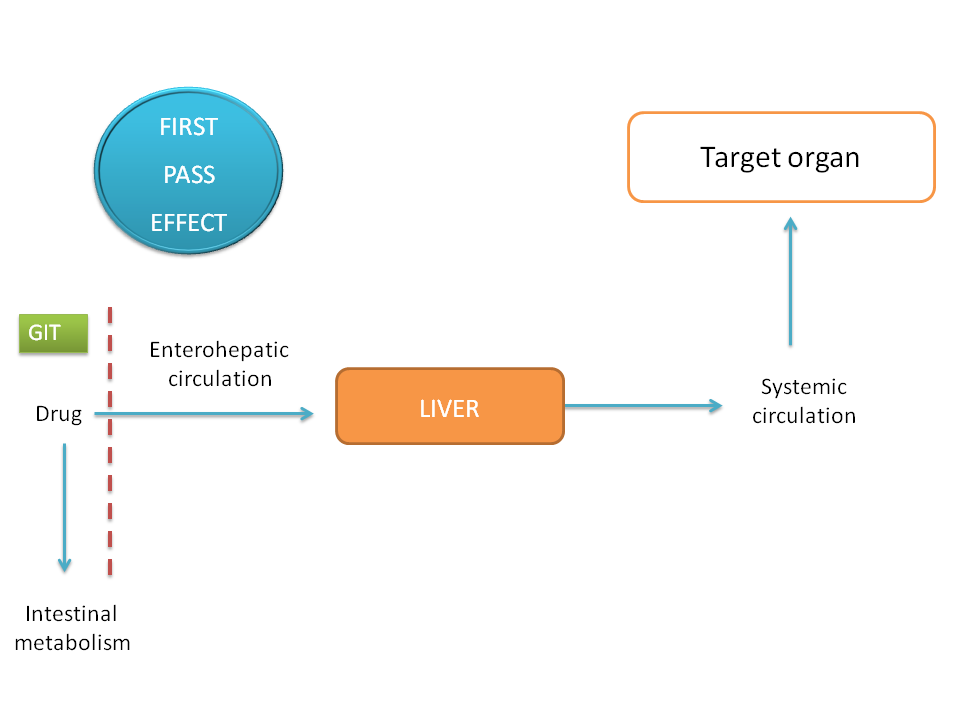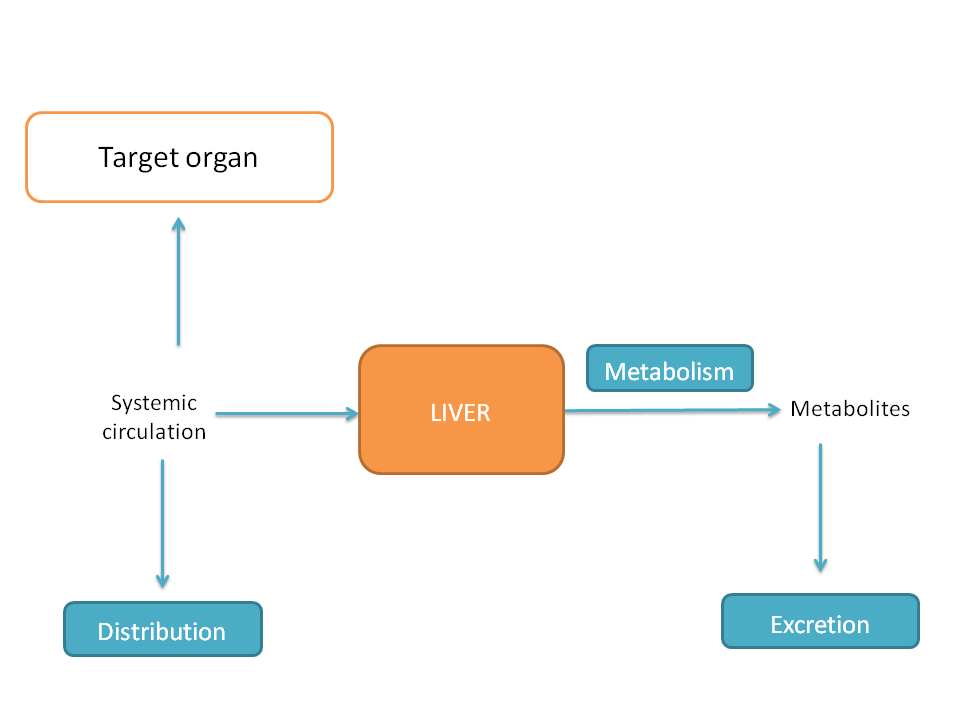Can lidocaine be given by oral route?
by egpat Posted on 09-06-2017
No. Lidocaine is not suitable for oral route.
Lidocaine is a local anaesthetic as well as class I antiarrhythmic agent. It acts by blocking fast acting voltage gated sodium channels thereby inhibits rapid depolarisation of heart.
Lidocaine shows high first pass metabolism therefore not suitable for oral administration. Hepatic metabolism plays important role in this first pass effect. When taken orally lidocaine is absorbed into enterohepatic circulation through GIT and reaches to the liver. Since it is metabolised before reaching to the target, the effect is called as "First pass effect". Due to this hepatic clearance very less amount of drug is available in the blood which is not sufficient to produce therapeutic response.
Hence lidocaine can be given by IV infusion which bypasses enterohepatic circulation preventing its first pass effect.

Even though IV route doesn't show first pass effect, still lidocaine can be metabolised by hepatic system. There is a difference between first pass metabolism and systemic metabolism. In first pass effect the drug is metabolised before reaching the target.  But in systemic metabolism the drug already reaches systemic circulation and some of the drug enters into the target organ and remaining portion of drug is distributed , metabolised and excreted.
But in systemic metabolism the drug already reaches systemic circulation and some of the drug enters into the target organ and remaining portion of drug is distributed , metabolised and excreted.  Hepatic metabolism is the main mechanism by which drug is cleared from the systemic circulation. As lidocaine is completely eliminated by hepatic system it is short acting. Therefore it is given as IV infusion
Hepatic metabolism is the main mechanism by which drug is cleared from the systemic circulation. As lidocaine is completely eliminated by hepatic system it is short acting. Therefore it is given as IV infusion